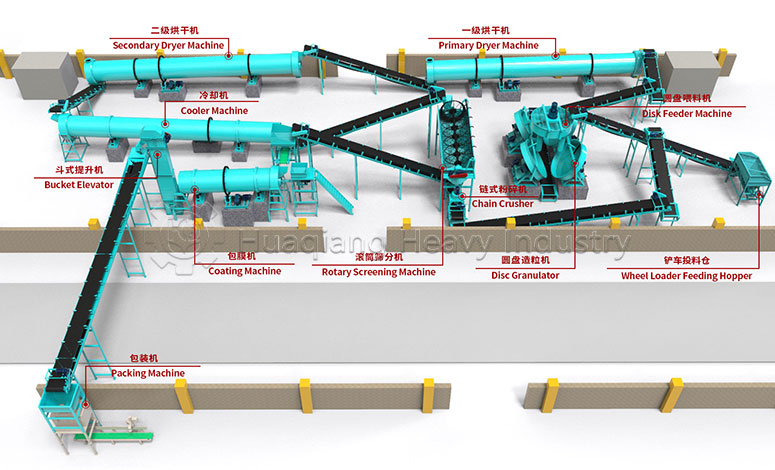Significance of bio-organic fertilizer production lines for sustainable agriculture
In modern agriculture, bio-organic fertilizer production lines play a crucial role in advancing sustainable farming practices.
First, these production lines help improve soil fertility. Long-term use of traditional chemical fertilizers often leads to issues like soil compaction and reduced fertility. In contrast, bio-organic fertilizers produced through these systems are rich in beneficial microorganisms and organic matter. These components enhance soil structure, making it looser and more breathable. This creates better conditions for crop root growth, strengthens the soil’s ability to retain water and nutrients, and lays a foundation for long-term agricultural stability.
Second, from an environmental perspective, bio-organic fertilizer production reduces reliance on chemical fertilizers. The energy-intensive manufacturing process of chemical fertilizers and their polluting effects during use have long burdened the environment. By promoting bio-organic alternatives, we lower risks of water and soil contamination caused by chemical fertilizers, fostering a healthier balance between agriculture and ecosystems.
Third, fertilizers from these bio-organic fertilizer production lines improve crop quality. They provide crops with balanced, comprehensive nutrition, resulting in produce with better taste and higher nutritional value. This boosts the market competitiveness of agricultural products, secures farmers’ incomes, and further drives sustainable agricultural development.
In summary, bio-organic fertilizer production lines serve as a powerful support system for sustainable agriculture. Their development and widespread adoption should be prioritized to ensure environmentally friendly and economically viable farming.
